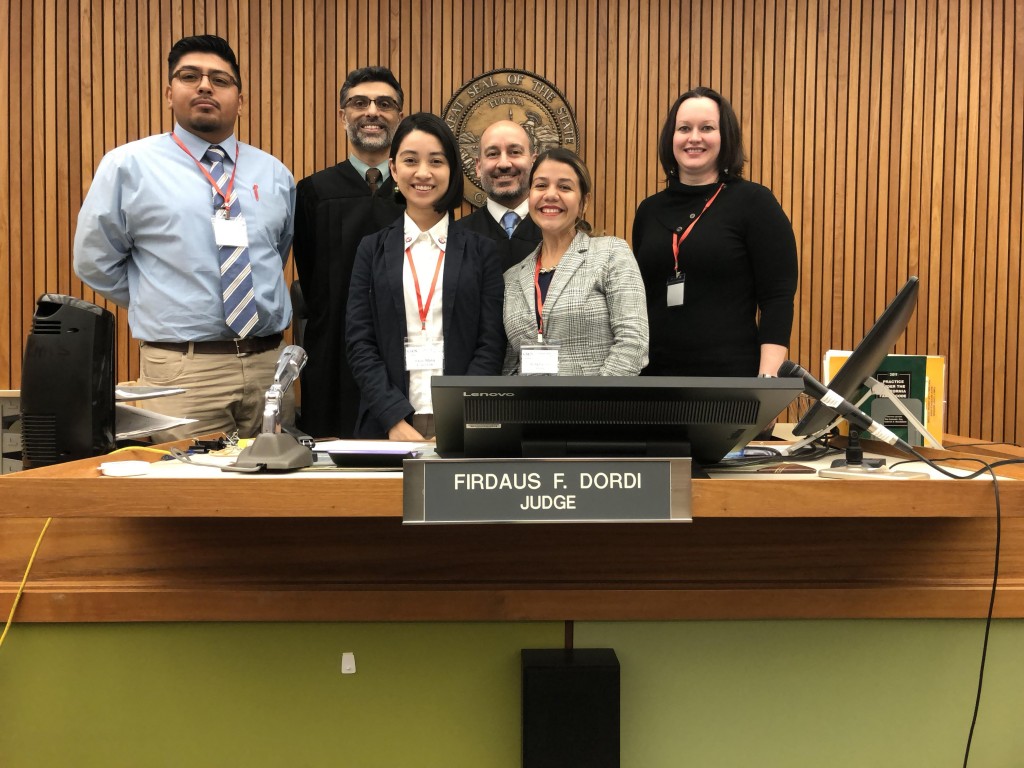CSUN Bridges Language Barriers for Spanish-Speaking Communities in Los Angeles

Spanish-language interpreting students receiving training at Los Angeles Superior Court. Photo courtesy of Svetlana V. Tyutina.
In the United States, Spanish is the most common non-English language spoken in homes, yet limited-English proficient Spanish speakers hit communication barriers in most major industries, such as business, healthcare, legal, government and education.
California State University, Northridge’s Department of Modern & Classical Languages and Literaturesis attempting to bridge these language barriers with the implementation of advanced Spanish translation service-learning courses on the legal and business communities.
“There is a great need for qualified translators and interpreters, and more so in Southern California,” said Svetlana V. Tyutina, the Spanish graduate program coordinator for the department and director of student service-learning at CSUN. “Next year, we’ll begin offering advanced translation and interpreting classes SPAN 462 and SPAN 472 that will include hands-on experience vital for this field.”
The courses will include internship opportunities through service-learning projects. One of the projects, piloted last fall, will focus on establishing a partnership with the Los Angeles Superior Court. Student participants will interpret for Spanish-speaking clients during the pro-bono mediation event Settle-O-Rama in family law court.
Spanish-speaking clients, who often had limited access to these services because of a lack of interpreters in the past, will now be able receive assistance free of charge. As part of their preparation, students will shadow judges and court interpreters.
“The opportunity our students have to apply their degree back in the community is really important,” Tyutina said. “The impact this volunteer service has in the lives of people in our Spanish-speaking communities, who may otherwise not have access to these resources, is significant and essential to promote equality,” she said.
The second course involves a collaboration with the CSUN Volunteer Income Tax Assistance (VITA) Clinic, which provides income tax preparation to low-income residents. Students in the class will not only receive professional linguistic preparation but will undergo two mandatory trainings through the IRS to receive an IRS certification.
“For these projects, our main goal is to provide students with hands-on experience and expose them to the needs of our Spanish-speaking community,” Tyutina said. “When students understand the needs of the bilingual community, once they graduate, they will have a much better comprehension of where they can use their skills.”
For more information on the translation and interpreting courses at CSUN, please visit the department of modern and classical language and literature website webpage at : https://www.csun.edu/humanities/modern-classical-languages-literatures or contact MCLL via phone (818) 677-3467

 experience
experience